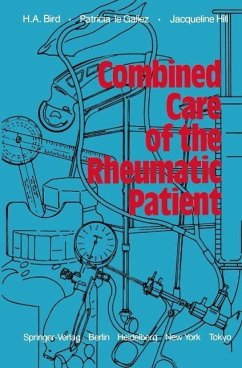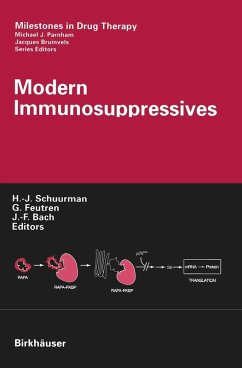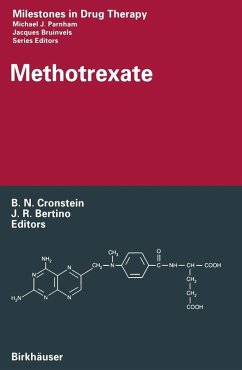
Antirheumatic Therapy: Actions and Outcomes (eBook, PDF)
Versandkostenfrei!
Sofort per Download lieferbar
Statt: 160,49 €**
112,95 €
inkl. MwSt.
**Preis der gedruckten Ausgabe (Gebundenes Buch)
Alle Infos zum eBook verschenkenWeitere Ausgaben:

PAYBACK Punkte
56 °P sammeln!
This book gives a comprehensive overview of disease-modifying antirheumatic drugs (DMARDs). The introductory general chapters deal with the chemistry of DMARDs, their use in therapy, pharmacoeconomics, and a survey of opinion leaders in the field; the following specific chapters characterize each agent with regard to mechanism of action, therapy, pharmacology, efficacy, toxicity, and monitoring. For each agent some background is given, recent developments and influence of the treatment on patients` quality of life and long-term outcomes are presented.
Dieser Download kann aus rechtlichen Gründen nur mit Rechnungsadresse in A, B, BG, CY, CZ, D, DK, EW, E, FIN, F, GR, HR, H, IRL, I, LT, L, LR, M, NL, PL, P, R, S, SLO, SK ausgeliefert werden.












